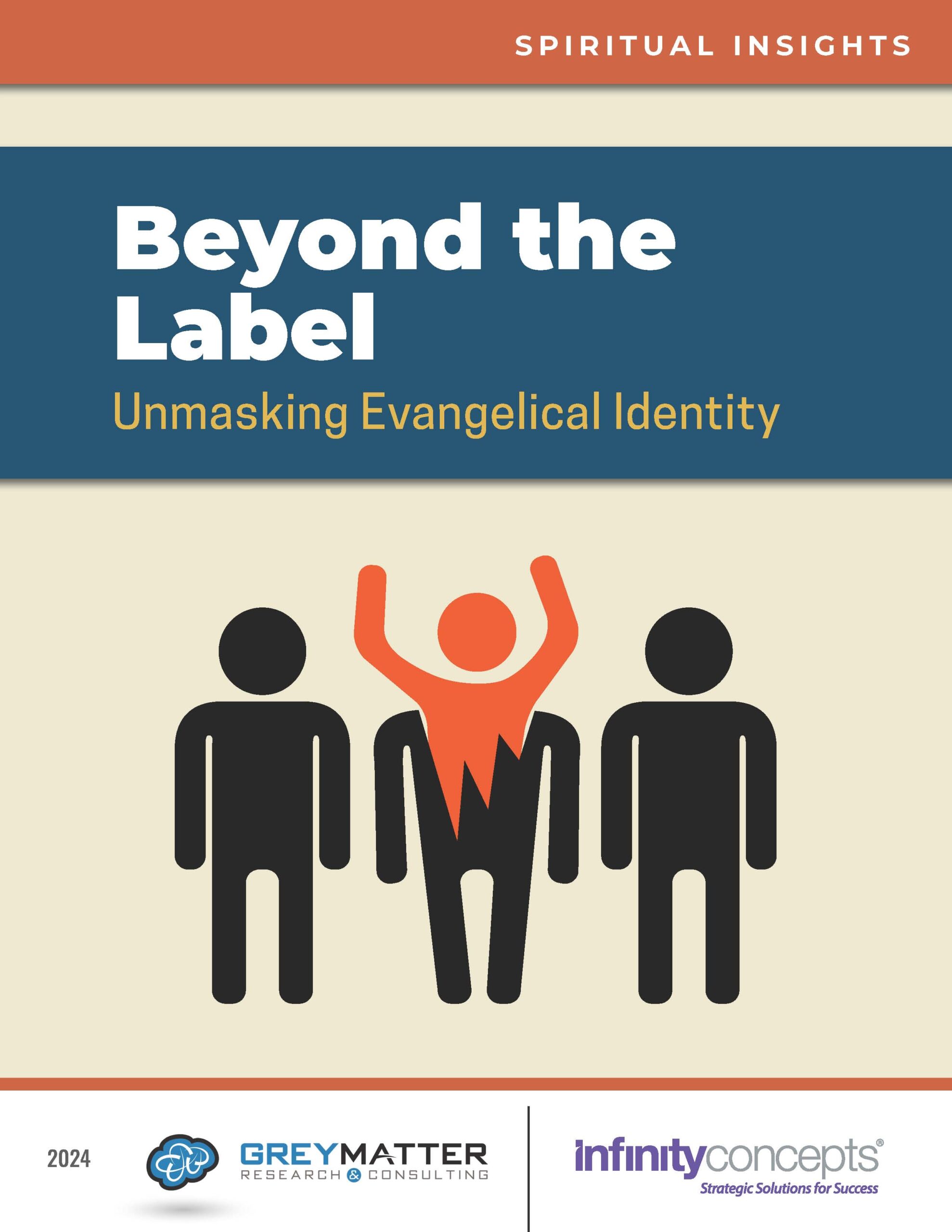What is an evangelical?
We hear it all the time: evangelicals are voting for Trump. Evangelicals are leaving the Church. Evangelicals are doing this, that, or the other thing. But what happens when we look beyond the label?
Rarely do people stop to ask: Exactly what is an evangelical?
In fact, depending on how researchers define this term, evangelicals represent anywhere from 7% to 40% of the American population. And these varying definitions lead to contradictory research findings.

For instance, one study claimed 79% of young, unmarried evangelical adults have been sexually active. But a different study (using a different definition) put the figure at just 44%.
Evangelicals often don’t use this word
Grey Matter Research partnered with Infinity Concepts for Beyond the Label: Unmasking Evangelical Identity. We studied over 1,000 Protestant Americans who hold core evangelical theological beliefs. When directly asked whether they are evangelical Christians, 39% say no. When asked whether they would choose to use the term “an evangelical Christian” to describe themselves, 73% would not.
So four out of ten people with evangelical beliefs flatly reject being called “evangelical.” Another 34% admit they are evangelical, but prefer not to use this term for themselves.
Learn all the details in our new report Beyond the Label: Unmasking Evangelical Identity, from Grey Matter Research and Infinity Concepts. (For a free copy of Beyond the Label, simply e-mail ron@greymatterresearch.com.)
An unfamiliar term
People with evangelical beliefs who do not consider themselves to be evangelical often lack familiarity with the term. Many weren’t raised with it (42%). They’re not really sure what it means (37%). Their church does not use this term (27%).
Negative baggage
Whether or not they personally use this description, just 7% of people with evangelical beliefs personally hold a negative impression of the term. In fact, seven out of ten have a positive view of “evangelical.” However, just 24% believe Americans in general have a positive view of the description. Worse, 18% feel the media tends to have a positive view of the term. Half believe the media has a negative view of “evangelical.”
In fact, among people with evangelical beliefs who decline to describe themselves as evangelical, 36% say the term is too misused or misunderstood for them to want to apply it to themselves. Nineteen percent simply believe the word has too much negative baggage or meaning.
Implications
Our research findings have many implications for churches, ministries, and individual Christians. First, when you read research supposedly representing “evangelicals,” it’s critical to understand how the researchers defined the term. For example, many political researchers simply ask people whether they are evangelicals. However, as you can see, that’s not an accurate way to measure this population.
Second, it’s critical to recognize that what you mean by “evangelical” may be completely different from what others mean. It’s like two people talking about “native Americans.” If one means “American Indians” and the other “anyone born in the US,” that’s going to lead to a lot of confusion and misunderstanding.
Beyond the Label: Unmasking Evangelical Identity details the findings from a study of more than 1,000 evangelical Protestant adults. The report is available free (e-mail ron@greymatterresearch.com).
How Can We Help You?
It’s critical to understand what the word “evangelical” means to people. In the same way, it’s critical to know how your communications impact people overall. Do they get what you’re saying? Does it resonate with them? Does it matter?
Grey Matter has helped scores of organizations understand their current constituents and their target market, including communications ranging from newsletters to TV programs to taglines. This includes a wide variety of donor-supported organizations (faith-based and non-faith-based), denominations and individual churches, marketing/advertising/fundraising agencies, and for-profit companies.
How can we help you?
We have A Passion for Research That Makes a Difference. Talk to us about how we can make a difference for you.
